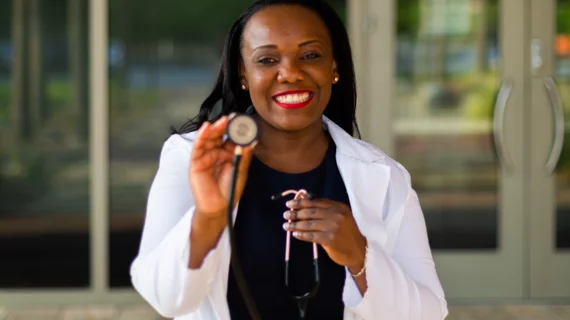Following 2024 fellowship matching, neuroradiology said to be ‘at its hottest point ever’
Neuroradiology has topped the field among imaging subspecialties vying for new fellows to train, filling 287 of 316 certified positions—a 90.8% fill rate—across 87 fellowship programs.
The strong showing prompted neuroradiologist Francis Deng, MD, of Johns Hopkins to tweet: “Neuroradiology is at its hottest point ever.”
NRMP, the National Resident Matching Program, announced the results June 12.
Across all radiology subspecialties, 346 certified programs filled 706 of 920 positions, a solid 76.7% clip.
Of subspecialties highlighted by NRMP, the runners-up were:
- Breast imaging—79.4% (162 of 204 positions filled)
- Musculoskeletal radiology—72.9% (156 of 214 positions filled)
- Interventional radiology—58.5% (93 of 159 positions filled)
- Emergency radiology—29.6% (8 of 27 positions filled)
In celebration of Fellowship Match Day 2024, the national practice Radiology Partners has posted quotes from several of its own radiologists. RP asked each what appealed to them about their respective subspecialties.
“I was once given this advice: Choose a fellowship that you find interesting, difficult or both,” responded Jessica Behringer, DO. “[N]euroradiology fell into the ‘both’ category for me.”
RP diagnostic radiologist Nathan Durick, MD, said he was drawn to body imaging by the individuals he met along the way to his subspecialist match day:
‘Of all the subspecialties in radiology, I really connected with the group of people in the body imaging department. That drew me [in], and I’ve been in love with it ever since.’
See NRMP’s 2024 full statistics report for radiology here.

